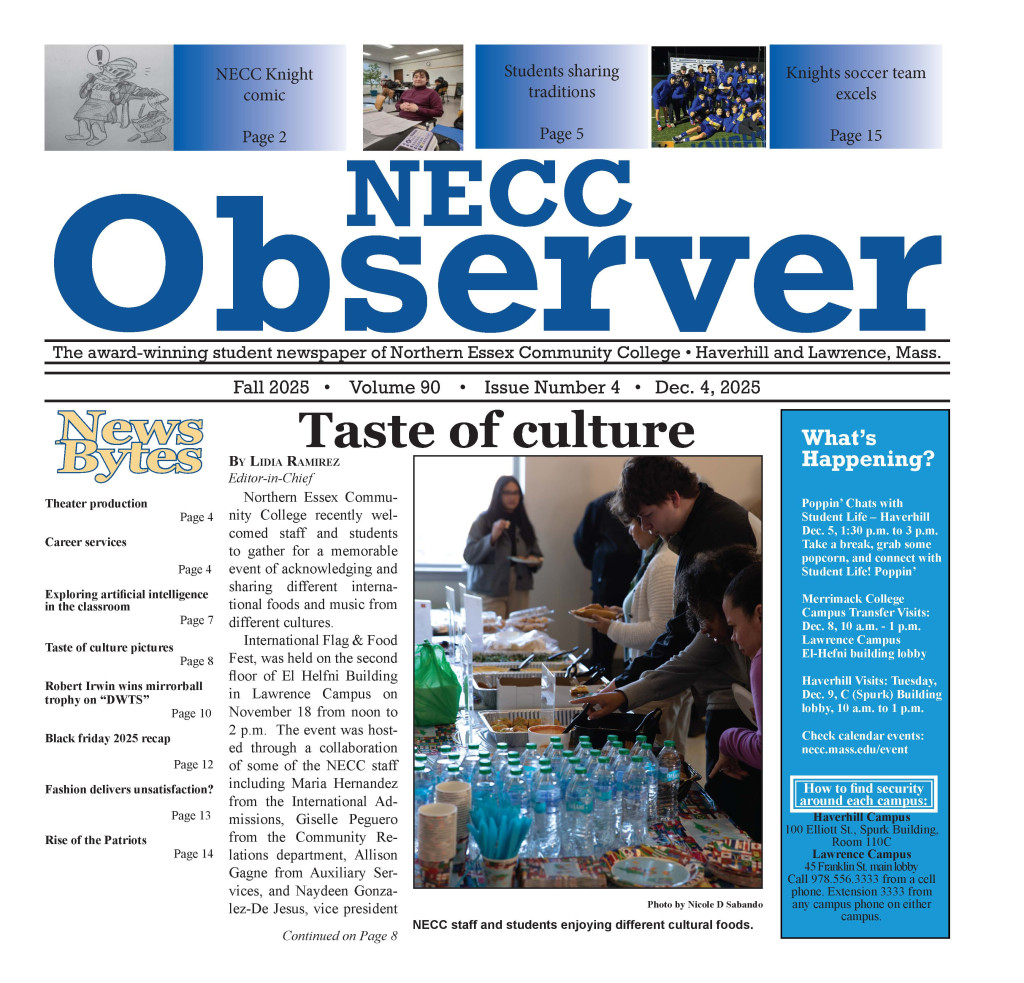During NECC’s College for a Day, which happened alongside the annual Spring Jam celebration on April 15, high schoolers from around the area visited to get an idea of what the average day in college is like. In an effort to help the LGBTQ+ demographic feel more welcome, the GSA set up a table outside where these students could ask questions about the organization and sign up for a list to receive news and information via email. In the spirit of celebration that comes along with Spring Jam, those at the GSA table handed out candy and stickers.
Kelly Schwing leads the group as student president, explaining the possible benefits for those entering higher education for the first time.
“Having the GSA could make the transition from high school to college a little easier,” she said. “Students in the LGBTQ+ community sometimes find themselves feeling left out and the GSA gives them a place to hang their hat.”
Of course, transitioning to college is overwhelming for almost anyone, but there’s an added level of stress for those who identify somewhere on the LGBTQ+ spectrum. According to a national report compiled by the Gay, Lesbian & Straight Education Network, “more than 60 percent of LGBTQ+ students do not feel safe in schools because of their sexual orientation, and 38.4 percent do not feel safe because of their gender expression.”
Colby Patrie, another member of the GSA, explained how having a safe space benefited him during his transition to college.
“In high school, I was the only openly gay, genderqueer student,” he said. “No one else knew what that was, and I was harassed for it all the time until I stopped talking about it out of fear. Transitioning to college was rough for me . . . I was scared of what other students would think of me. The GSA was my first club I joined when I came to NECC . . .
“I remember they were talking about the transgender panel they were making, and I shyly raised my hand and asked if genderqueer could be added as well. They said they thought it was a wonderful idea, and from then on I made friends, I opened up, and I am so glad that every Friday I look forward to being able to talk about my personal issues without feeling judged.”
Patrie isn’t alone; students who have organizations like the GSA available to them generally have a better experience at college. Researchers from the California Safe Schools Coalition found a link between safe spaces for LGBTQ+ students and feelings of safety among all students attending that school. Results from the survey found that “76 percent of students who attended a school with a GSA felt safe, versus 69 percent of students who attended a school without a GSA.”
“The GSA is a safe environment,” said Sara Ramirez, a student staff member of the group. “Our officers are equipped with phone numbers and assistance to help anyone. Our members have knowledge of different types of people, and we have a trigger warning protocol.”
Students who go to a school with a GSA don’t just feel safer — they are safer. The sex education provided by such student organizations often has a ripple effect beyond those within the group.
For example, students in schools with a GSA are more able to name faculty they feel safe with, less likely to be victims of dating violence and/or harassment related to sexual orientation and gender identity/expression.
“The GSA is one of the most accepting places on campus,” said Patrie. “Even if you’re not in the LGBTQ+ community, everyone is always welcome to come by and see what we’re all about.”

